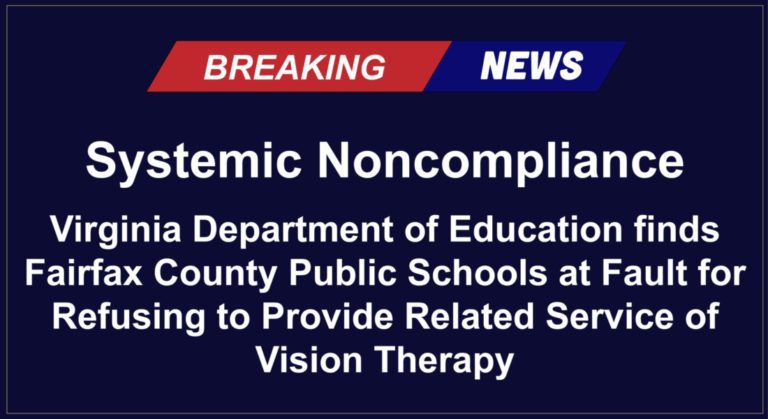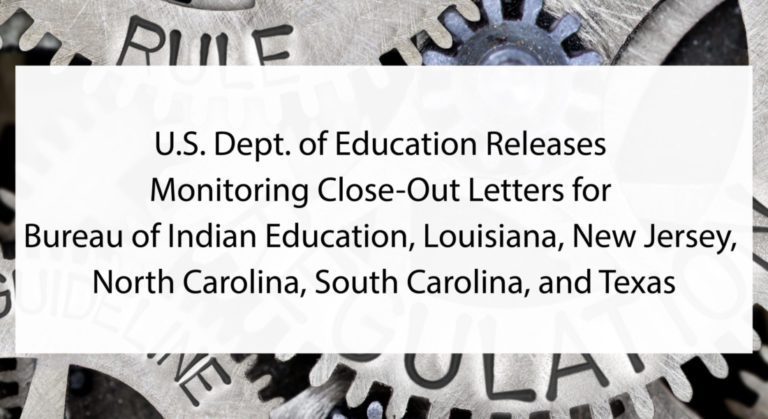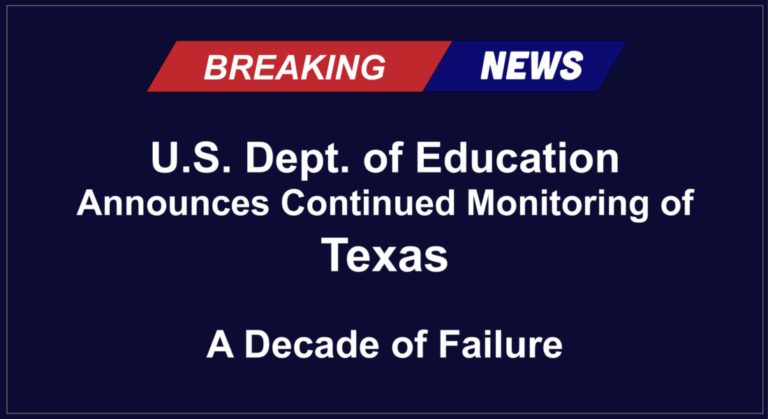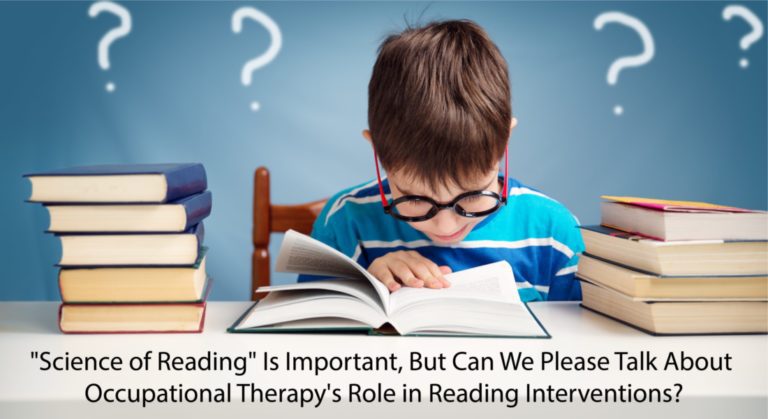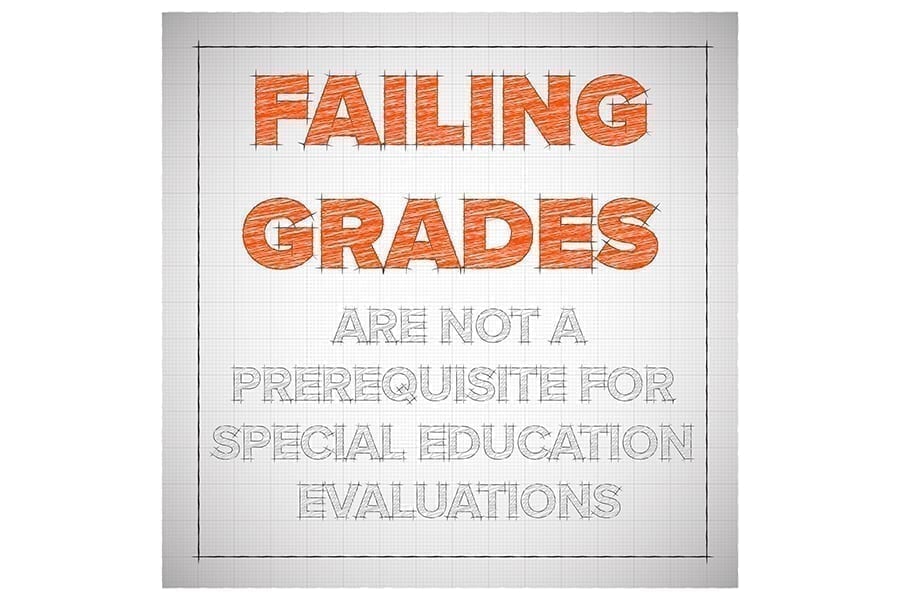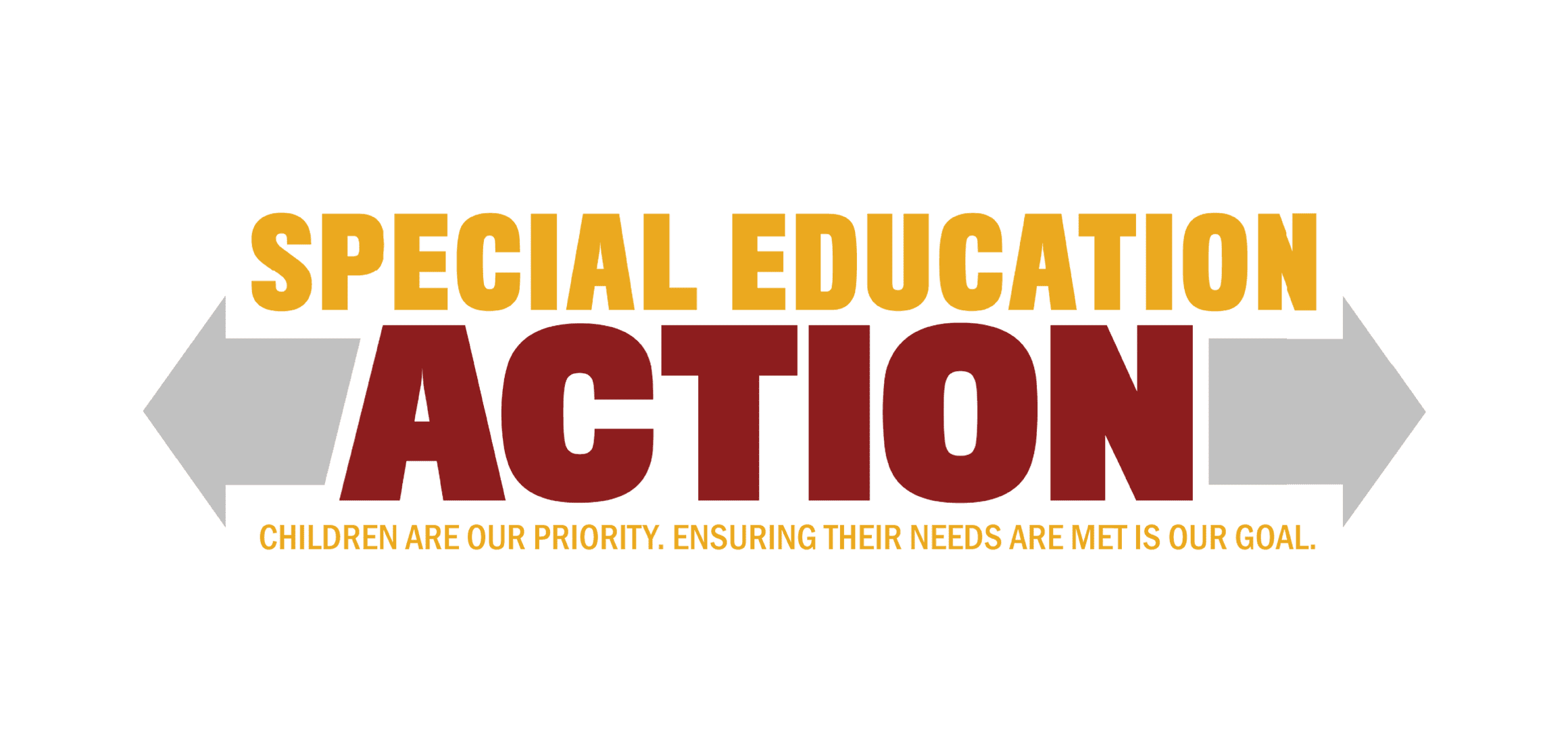
Special Education Action is a 501(c)3 nonprofit publisher covering special education.
Its mission is to ensure parents, educators, and students have the information and tools necessary to fully understand, address, and safeguard the unique needs of all students who require special education.
Recent Articles
Accommodation Breakdown: Reduced Load
“Reduced Load” is an accommodation that is wordsmithed like a politician’s speech. It doesn’t matter if your gut reaction to it is good or bad. Either way, you’re left wondering what it really means.
A reduced load is exactly what it sounds like: it is a reduction of the load the student must address.
What’s confusing about that?
Systemic Noncompliance: VA Dept. of Education finds Fairfax County at Fault for Refusing to Provide Related Service of Vision Therapy
Fairfax County Public Schools is in hot water again for another count of refusing to provide services to students. About six months after Office for Civil Rights (OCR) found FCPS at fault for systemic noncompliance between April 2020 and June 2022, and required FCPS to meet with the families of 28,000+ current and graduated students to determine compensatory services for students enrolled during the time period investigated by OCR, Virginia Department of Education (VDOE) found FCPS at fault for more systemic noncompliance. Like OCR, VDOE is requiring FCPS to meet with the families of students impacted and address compensatory education owed to the students.
U.S. Dept. of Education Releases Monitoring Close-Out Letters for Bureau of Indian Affairs, Louisiana, New Jersey, North Carolina, South Carolina, and Texas
The letters were issued between 2021 and May 2023, however OSEP waited until the past two months to publicly release them on USDOE’s website.
They detail years of monitoring, corrective actions required by OSEP, continued noncompliance, and the states eventually satisfying the action required by OSEP. However, in states like North Carolina and Texas there are a few caveats. caveats.
Seven Years and Millions of Children Later, U.S. Dept. of Education Announces Continued Monitoring of Texas
U.S. Department of Education Office of Special Education Programs announced it will continue its years-long monitoring of Texas Education Agency.
May 4, 2023, OSEP Director Valerie Williams issued a letter to TEA Commissioner Mike Morath, stating OSEP discovered TEA has been investigating Austin Independent School District for more than a year, “due to the district’s years-long backlog of special education evaluations, as required by the child find and evaluations requirements (34 C.F.R. §§ 300.301-306).”
The content of OSEP’s May 4, 2023, letter isn’t a surprise, although the letter being listed as a “DMS Close-out Letter” is an eyebrow raiser. TEA has a long history of failing to address the unique needs of children and providing them a free appropriate public education.
“Science of Reading” Is Important, But Can We Please Talk About Occupational Therapy’s Role in Reading Interventions?
However, being taught the necessary skills to read and write involves more than teaching children encoding and decoding. It involves learning how to hold a book and a pencil, tracking words on a page or screen, learning what strategies to use when fatigue or frustration overcome them, learning how to best advocate when they are struggling, identifying assistive technology to help them and teaching them how to use the assistive technology, and identifying and providing the specially-designed instruction needed to teach students this other side of reading and writing, and how to practice and perfect it.
Failing Grades Are Not A Prerequisite For Special Education Evaluations
The Individuals with Disabilities Education Act (IDEA) states that child find must include “Children who are suspected of being a child with a disability under §300.8 and in need of special education, even though they are advancing from grade to grade”. (Emphasis added. See 34 CFR 300.111(c)(1).)

